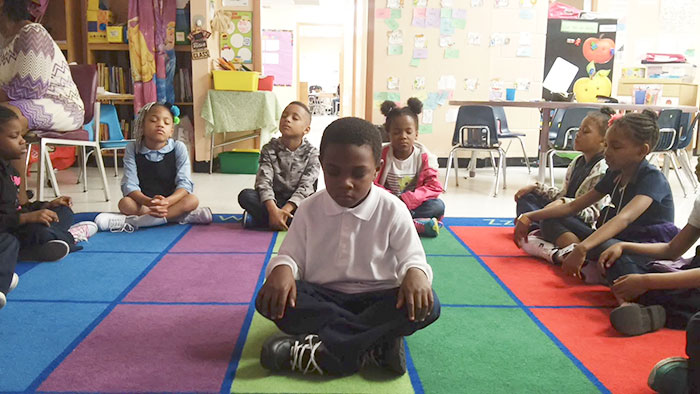Meditation Instead of Detention: Misbehavior As Learning Opportunity Rather Than a Punishment Trigger

Robert Coleman Elementary School's shift from detention to meditation has been creating a lot of buzz since the media covered the story early this fall. In late September, the school reported that it had yet to suspend a single student, attributing the fact to the increased mindfulness of students. James Gaines describes it this way:
Instead of punishing disruptive kids or sending them to the principal's office, the Baltimore school has something called the Mindful Moment Room instead. The room looks nothing like your standard windowless detention room. Instead, it's filled with lamps, decorations, and plush purple pillows. Misbehaving kids are encouraged to sit in the room and go through practices like breathing or meditation, helping them calm down and re-center. They are also asked to talk through what happened.
I have had a number of people approach me about the story with a glow in their eye and excitement in their voice. The results themselves are palpable, but I think the story also strikes a cord for different reasons: the approach is intuitive, humane, and strikes at the heart of the hopelessness that we so often feels in regard to the challenges our schools face. The notion that a low-cost and effective solution is at our fingertips is simply inspiring.
My interview with Patricia Raskin digs deeper into these issues, exploring why students misbehave, why programs like these work better than punishment, and proposes other policy approaches we should incorporate. At the heart of this conversation is the reality that students are still developing, still making honest mistakes as the navigate their changing environments, and still need the opportunity to learn from their mistakes. In short, discipline needs to be a learning opportunity first, not a basis for exclusion. Listen to the interview here. Also, read more about the meditation program here. Education Law Prof Blog:
